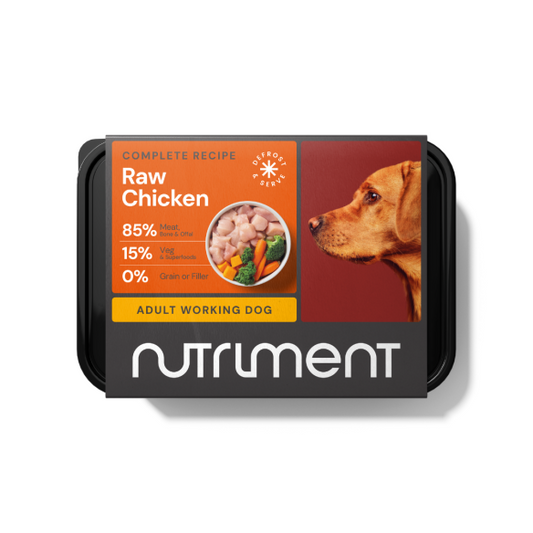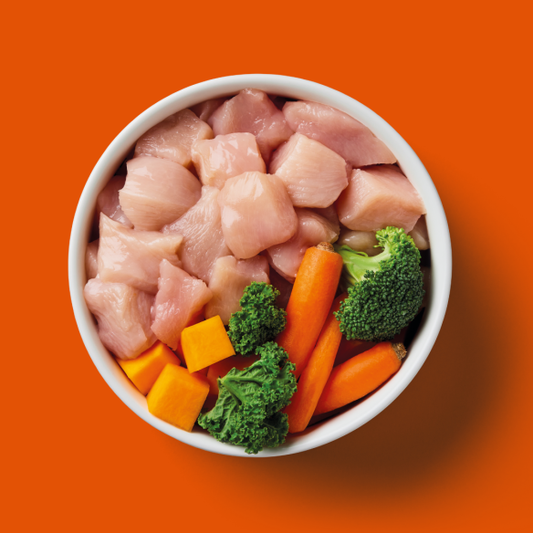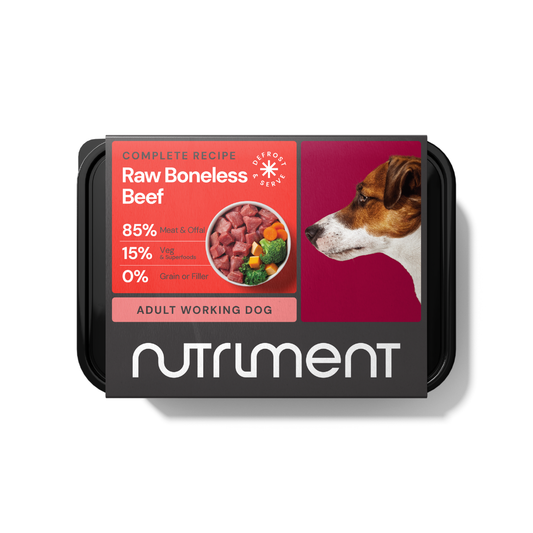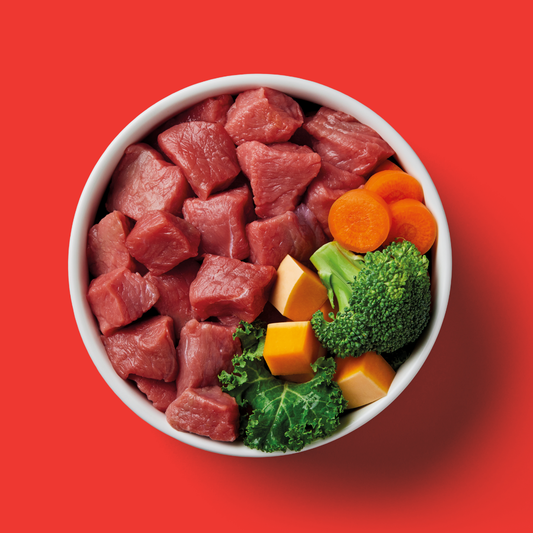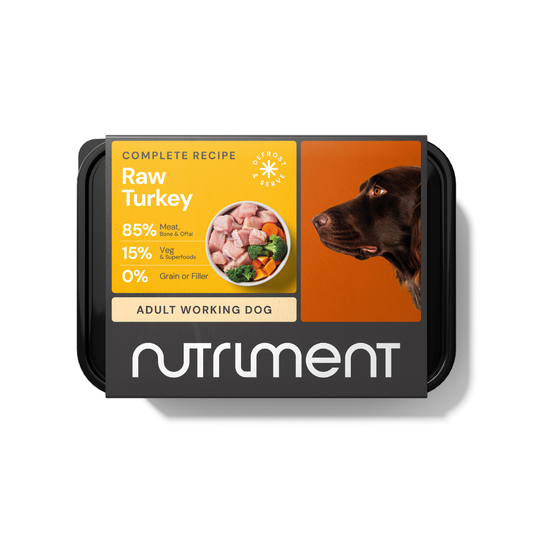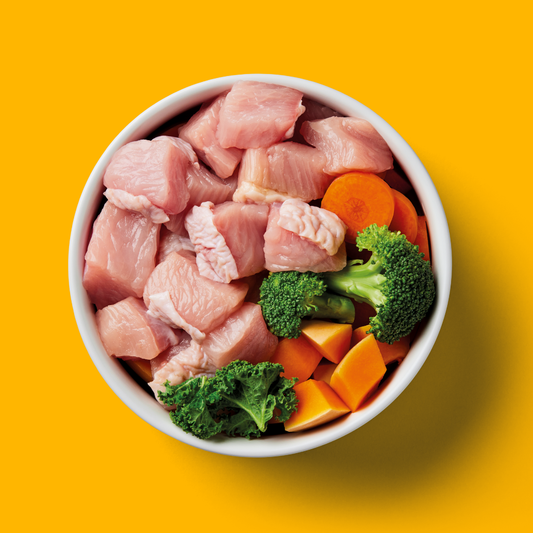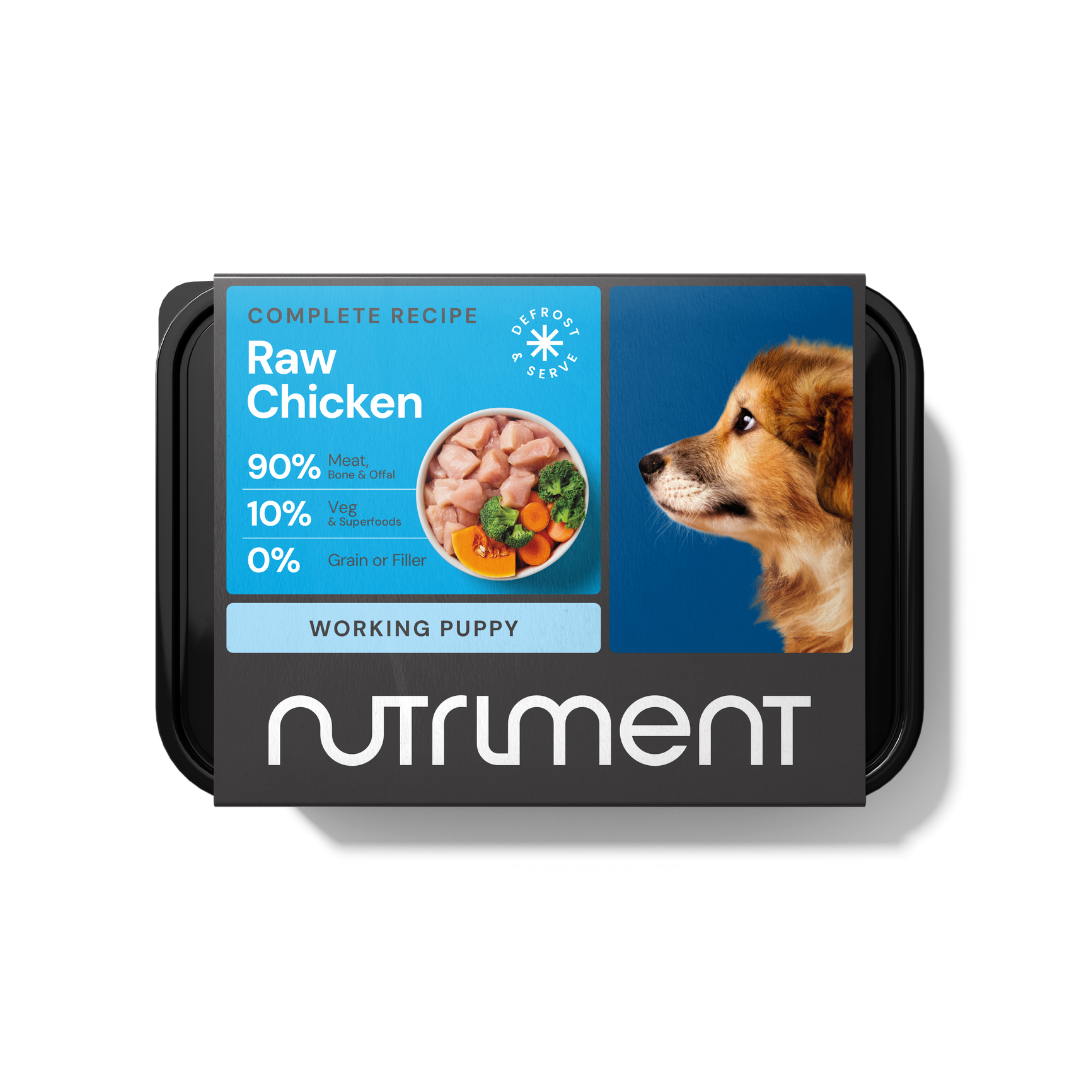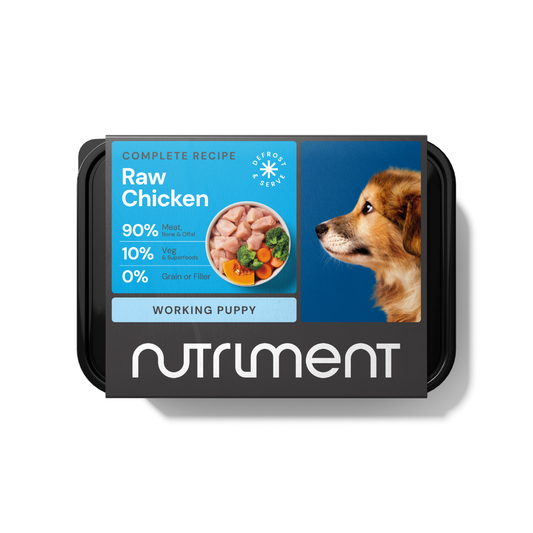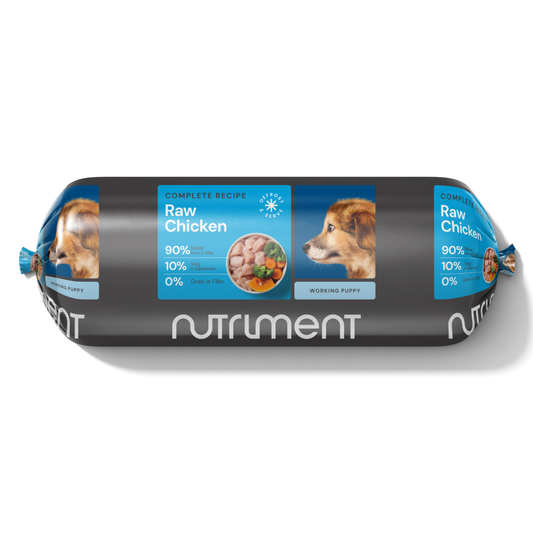
You’ve researched the breed, bought them a tag and a collar, and their toy box is over flowing. You’re counting down the days until you can bring your new four-legged best friend home. But, what food is going to set them up for a healthy and thriving adulthood?
New research has been released which looks into the impact of diet during puppyhood and how this impacts the health of our dogs later in life.
Both this new research, and previous studies, have found that feeding puppies and adolescent dogs a raw puppy food diet is the best way to prevent them from developing allergies, gastro-intestinal problems, ear infections and hip problems during their adult years.
Want to know more about how diet plays a massive role in your puppy’s future health? We’ve been through the research and given you a quick overview to each study!
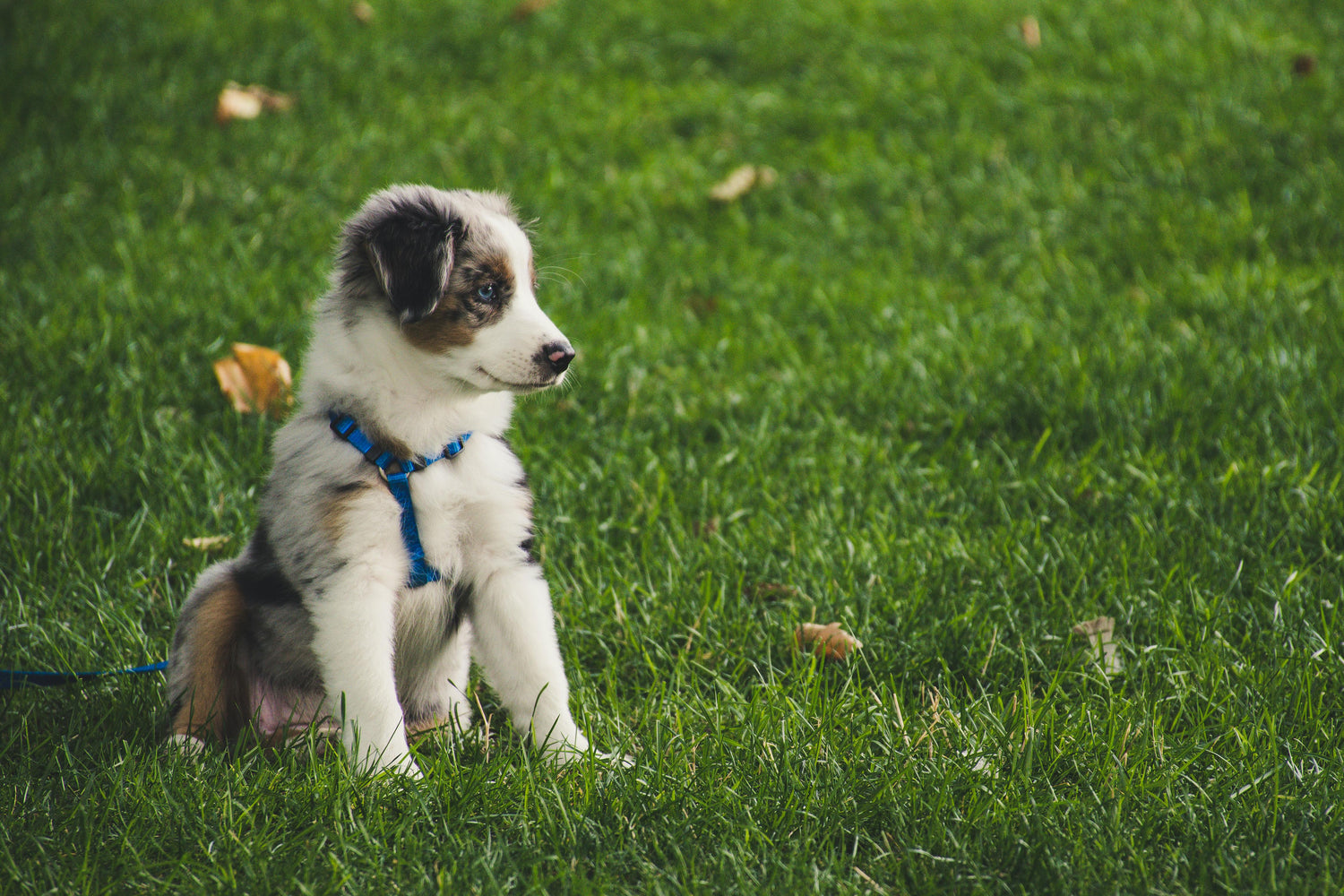
A study conducted in Finland in 2023 with over 16,000 dogs found that feeding a meat-based diet alongside raw bones and berries in the early life of dogs, can significantly reduce the risk of chronic enteropathy, a serious gut condition, in their adult life.
Puppy Raw Chicken 500g
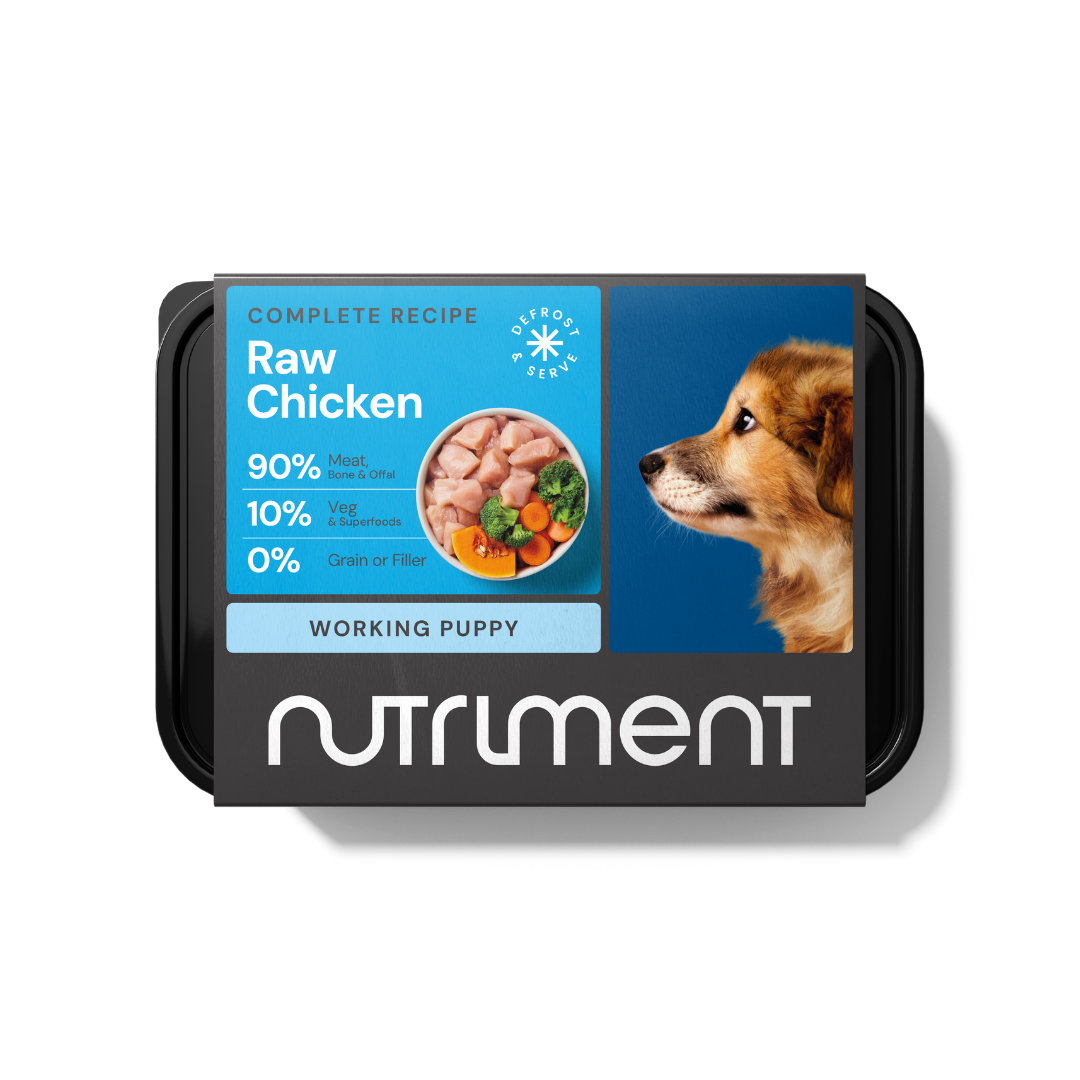
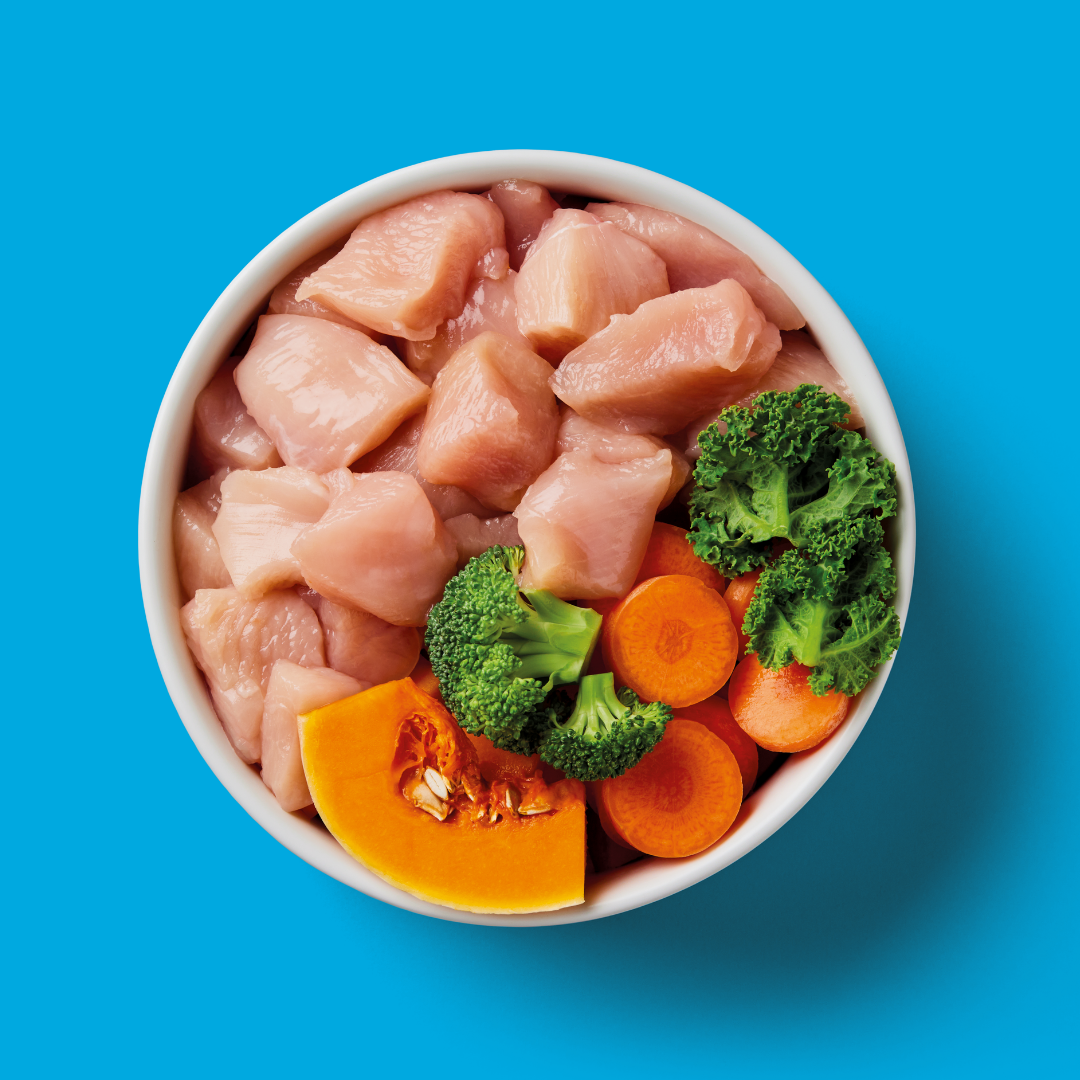
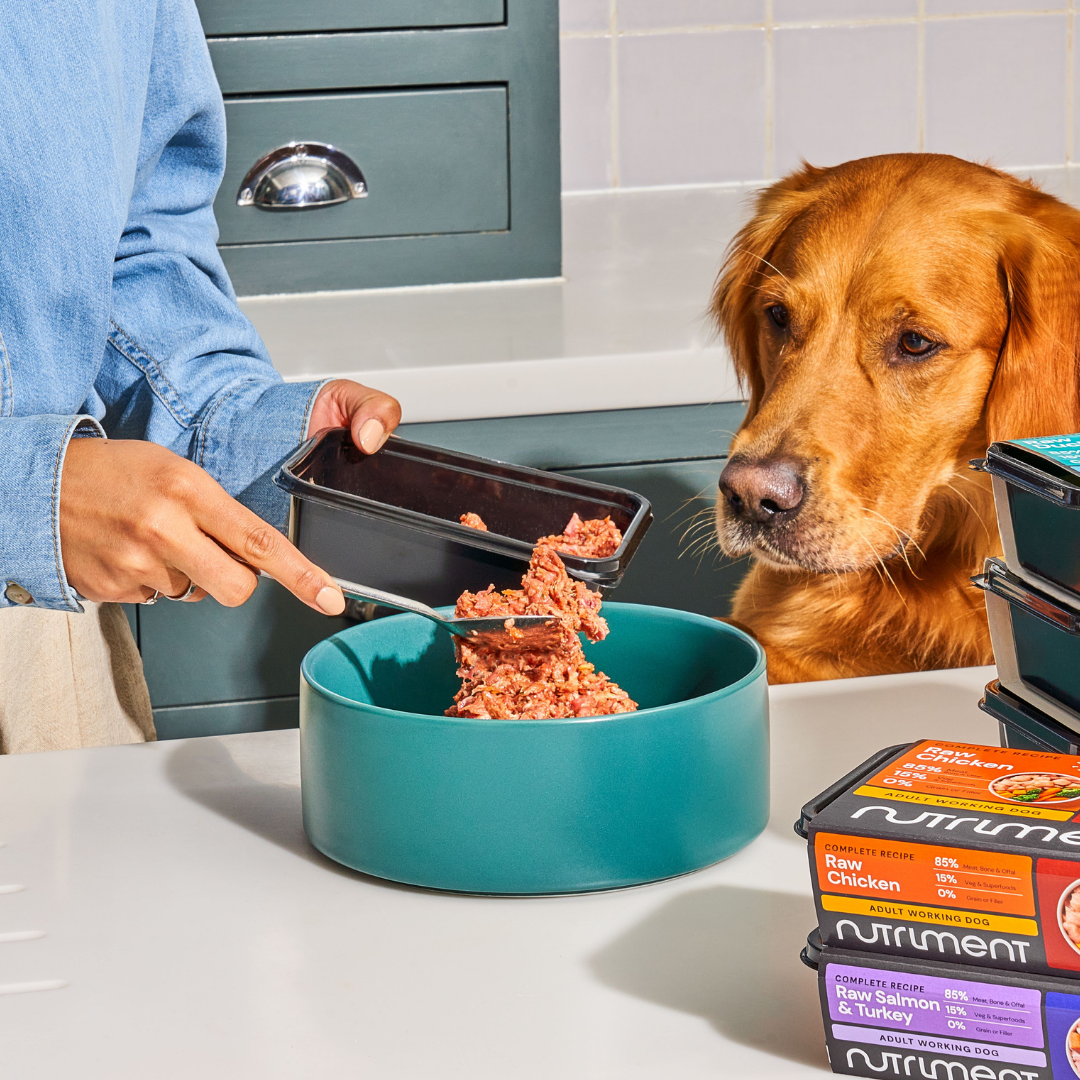
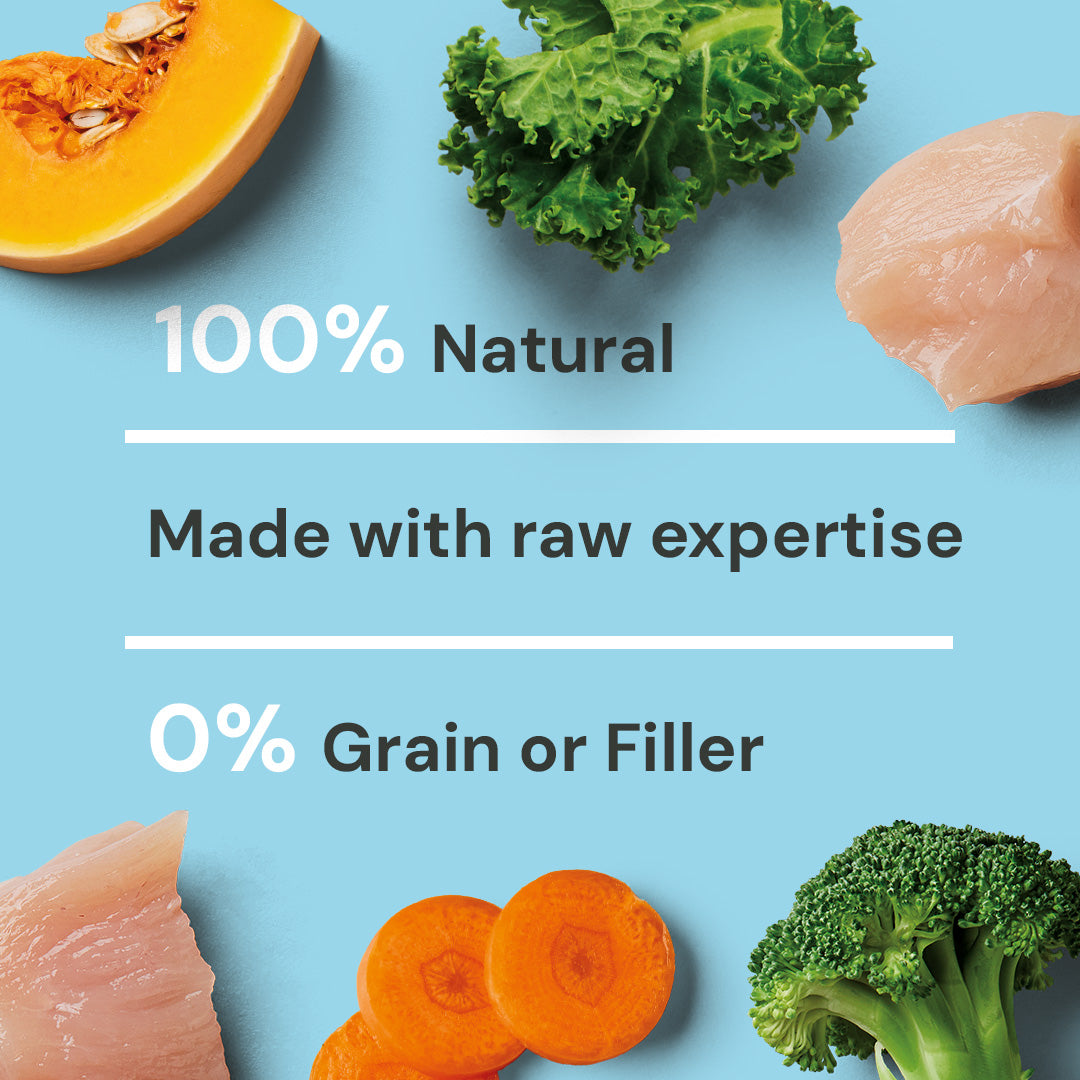
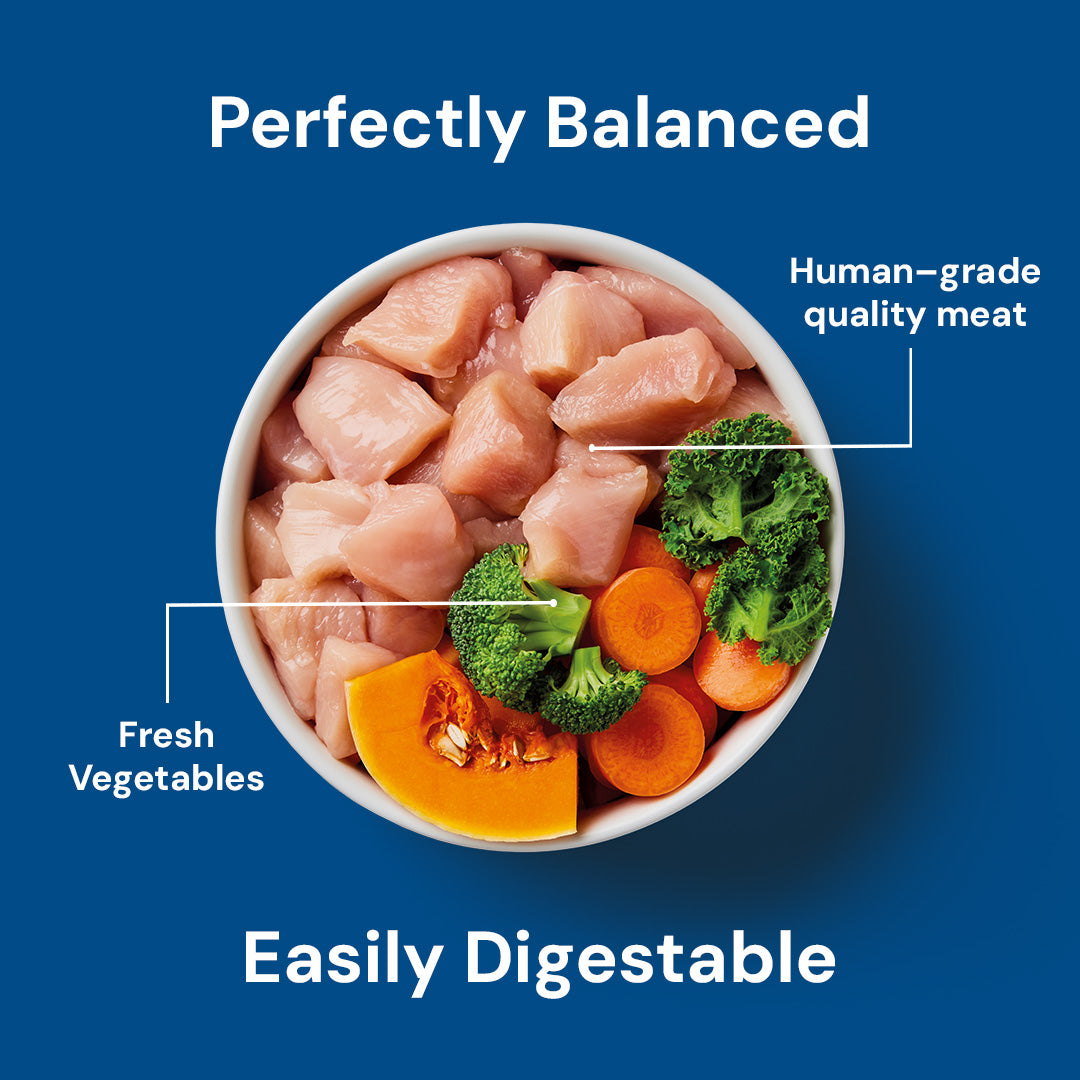
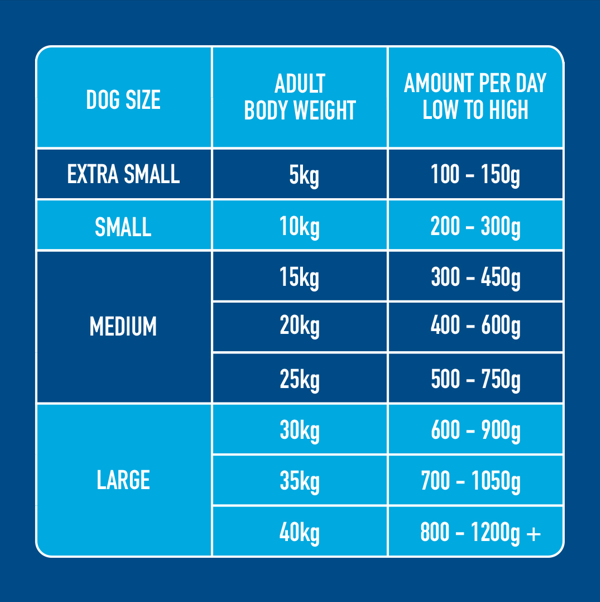

For puppies whose mothers were fed a raw diet and were introduced to a solid raw diet at weaning, they were found to have a lower risk of developing allergies, specifically atopic dermatitis.
How much food should I feed my puppy?
Because puppies are growing and developing they need to eat about 4-6% of their current weight throughout puppyhood to ensure their getting the most nutrients to fuel their puppy antics!
Want to know how much raw puppy food your pup needs, check out our raw food calculator!

Another 2021 study looked at over 7,000 dogs and the association between modifiable factors, such as diet, during puppyhood reduces the risk of inflammatory bowel disease (IBD). The study concluded that a puppy raw food diet presented a significantly lower risk of developing IBD in adulthood compared to dogs eating a predominantly kibble diet.
How often should I feed my puppy?
Most owners feed their puppies over three meals until they are 6 months old and then reduce their meals to twice a day.
To do this, take their daily allowance of puppy raw food and divide the amount by how many meals they need per day.
Want to know more about feeding your puppy on a raw diet?

This 2014 study specially researched how nutrition at a young age can impact adult hip health specifically in German Shepherds. As a breed, German Shepherds are often associated with having poor hind conformation and poor rear movement, so studying the impact diet can have in their hip joints has significant benefits not only to the breed, but also for all owners of breeds commonly associated with hip problems.
The study found that feeding raw meat puppy food was associated with a protective effect against chronic hip dysplasia. Whilst there was no association for dogs fed a kibble diet, those with healthier hips consumed significantly more raw food.
How long should a puppy eat puppy food?
Puppies on a raw diet can transition to adult recipes much sooner than their kibble fed counterparts.
You can start feeding a puppy adult raw food from as early as 12 weeks but you will need to continue feeding them the puppy amount until they are 12 months old (18 months for giant breeds).
As puppies develop, they go through hormone changes which can affect their appetite. Switching up the proteins on offer to them develops their palette and continues to make mealtimes exciting.
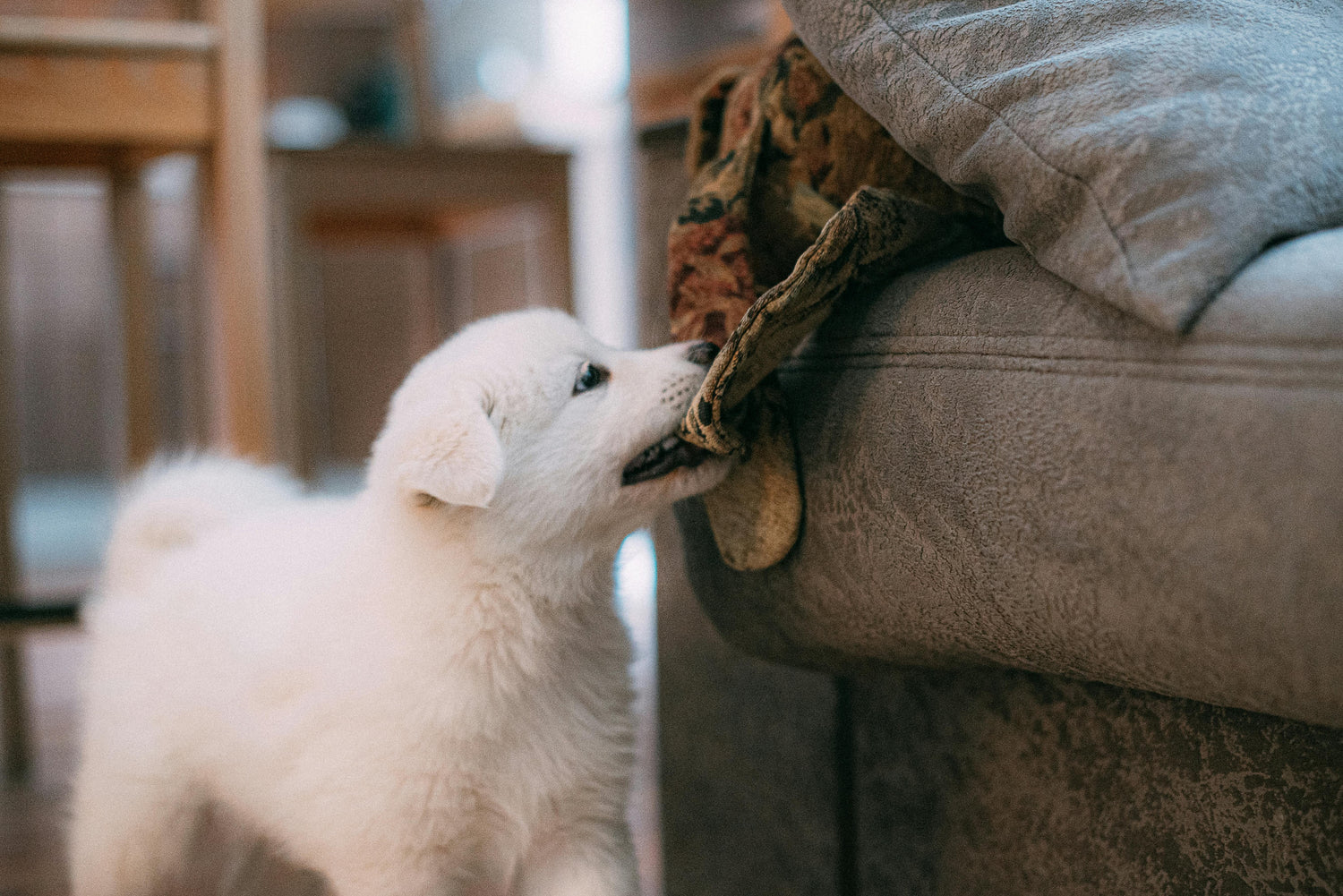
Otitis is more commonly known as an ear infection. A 2023 study discovered that feeding a raw diet during pregnancy and puppy hood resulted in dogs with a reduced risk of otitis later in life whereas ultra-processed diets increased susceptibility.
Our raw puppy food
-
Regular price £3.19Regular price£6.38 / kg Unit price / per
-
Regular price £7.49Regular price£5.35 / kg Unit price / per
-
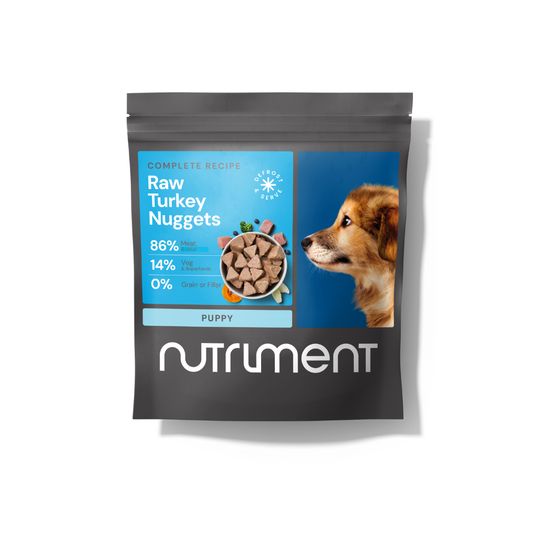 Sale - 10 %Regular price £6.56Regular price£6.56 / kg Unit price / per
Sale - 10 %Regular price £6.56Regular price£6.56 / kg Unit price / per£7.29Sale price £6.56Sale -
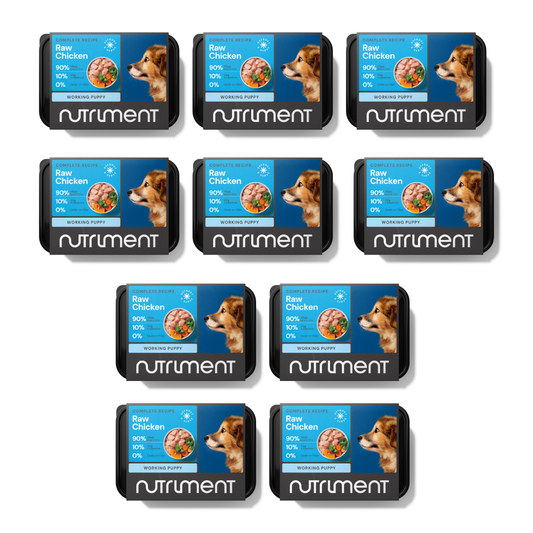 Sale - 15 %Regular price £26.99Regular price£5.40 / kg Unit price / per
Sale - 15 %Regular price £26.99Regular price£5.40 / kg Unit price / per£31.79Sale price £26.99Sale
References
- Vuori, K., A., Hemida, M., Moore, R., Salin, S., Rosendahl, S., Anturaniemi, J. & Hielm-Björkman, A. (2023). The effect of puppyhood and adolescent diet on the incidence of chronic enteropathy in dogs later in life. Scientific Reports. 13 (1830)
- Hemida, M., Vuori, K., A., Moore, R., Anturaniemi, J. & Hielm-Björkman, A. (2021). Early Life Modifiable Exposures and Their Association With Owner Reported Inflammatory Bowel Disease Symptoms in Adult Dogs. Frontiers in veterinary science,8, 552350.
- Grundström, S. (2014.) Influence of nutrition at young age on canine hip dysplasia in German Shepherd dogs.
- Hemida, M., Vuori, K. A., Salin, S., Moore, R., Anturaniemi, J., & Hielm-Björkman, A. (2020). Identification of modifiable pre-and postnatal dietary and environmental exposures associated with owner-reported canine atopic dermatitis in Finland using a web-based questionnaire.PLoS One,15(5), e0225675.
- Hemida, M., Vuori, K. A., Borgström, N. C., Moore, R., Rosendahl, S., Anturaniemi, J., ... & Hielm-Björkman, A. (2023). Early life programming by diet can play a role in risk reduction of otitis in dogs.Frontiers in Veterinary Science,10, 1186131.
